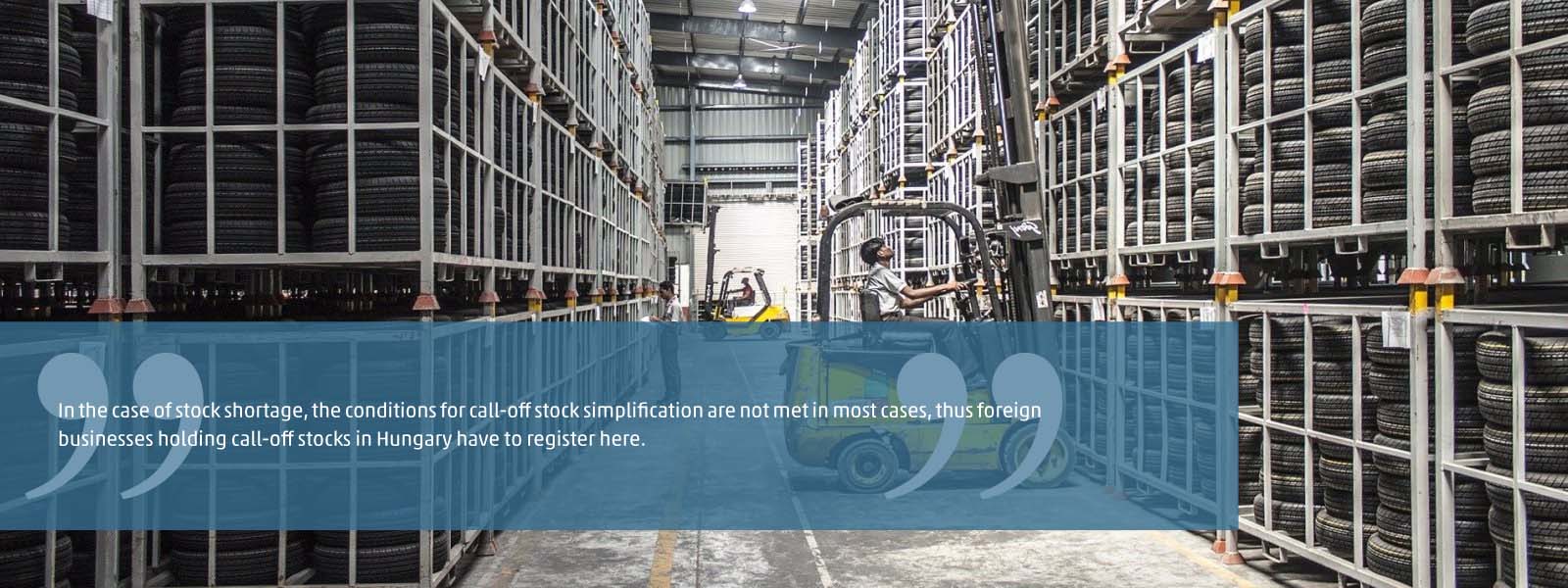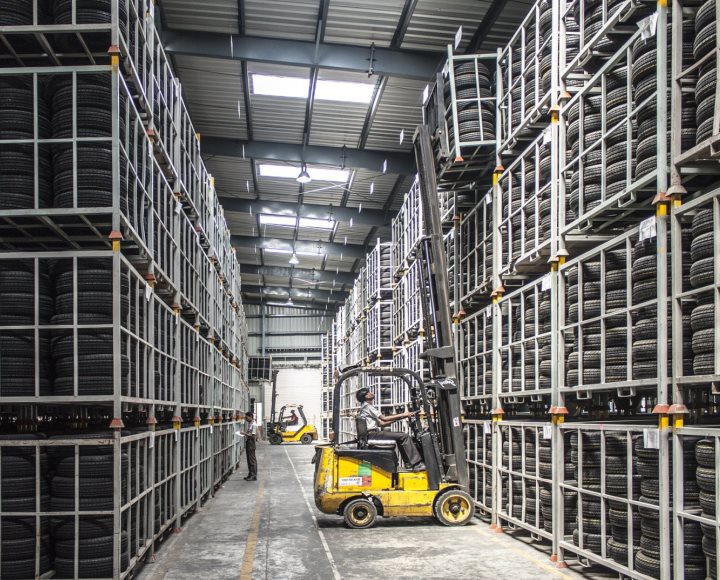It can easily upset the life of businesses applying the call-off stock simplification rule if there is a shortage in call-off stock. In the case of such stock shortage, the conditions for call-off stock simplification are not met in most cases, thus foreign businesses holding call-off stocks in Hungary have to register here. When is there a call-off stock shortage? For what size and type of call-off stock shortage is the simplification rule not applicable? Is it possible to receive exemption from registration in Hungary in the case of a certain level of call-off stock shortage? These are the questions I will be seeking to answer below.
What do call-off stock and the simplification rule mean?
In the context of Hungary, call-off stock is basically the Hungarian stock of a seller from another Member State, where the goods are used from the stock and supplied at the customer’s discretion. The call-off stock simplification rule means that the seller from another EU Member State is not required to register as a Hungarian taxpayer because of the call-off stock kept in Hungary; consequently, it is not necessary to report the stock supply as the shipping of own goods and charge Hungarian VAT when selling the stock later on. Two transactions become one, namely, for the seller this means a tax-exempt sale within the EU, while for the customer it is an intra-EU purchase using the stock.
What has changed since 1 January 2020?
Due to compliance with EU regulations, Hungarian rules on call-off stock changed from 1 January 2020, and in terms of application they became more stringent. Most important changes:
- the seller must know who the potential customer is and what their tax number is at the time of the goods transfer;
- the fact of the goods transfer must be indicated on the EC sales list, while both the entity transporting the goods and the potential buyer must have detailed records on the goods.
- the customer has to call off the goods within 12 months of delivery.
In line with EU law, starting from 1 January 2020, the rules on call-off stock in the Hungarian VAT Act also stipulate that in case of the destruction, loss or theft of products within the call-off stock (collectively: stock shortage), the conditions for applying the call-off stock simplification rule are no longer met when the product has actually disappeared or was destroyed, or if it is impossible to define this time, then the conditions for simplification are no longer met when it transpires that the product has been destroyed or is missing.
How to treat destroyed or stolen goods
Goods can be destroyed in transit, or perhaps there is a fire at the customer’s warehouse, or the goods stored in the warehouse simply disappear without a trace. In this case, from a call-off stock perspective it is important to note that when the goods are destroyed or the theft is detected, the conditions for call-off stock simplification are no longer met, so at this time the transfer of goods for call-off stock qualifies as an intra-Community transaction. Consequently, the foreign business must apply for a tax number and the competent authorities in both countries must be notified of the goods movement.
Is it always necessary to apply for a Hungarian tax number in the case of a call-off stock shortage, or are there any exceptions?
According to Taxation Issue No. 2021/7 issued on 26 November 2021 by the Customer Relations and Information Division of the National Tax and Customs Administration, any shortage derived from the very nature of the product (natural decrease) is an exception to the above rule i.e. such minor stock shortage will not automatically render the call-off stock simplification rule inapplicable, or the pertaining obligation to register in Hungary.
“The basic goal of the tax payment liability required in respect of a call-off stock shortage is to prevent untaxed final consumption. Yet the nature of the product may also result in a stock shortage, but this is due to a natural “decrease” of the product (e.g. perishable food, natural evaporation). However, payment of the tax liability imposes an administrative burden on taxpayers moving their own products, which was possibly avoided because of the call-off stock simplification. To ensure that the natural “decrease” derived from the nature of the given product does not result in the loss of the administrative relief granted to the taxpayer moving its own products because of the call-off stock simplification rules, it is best to recognise minor shortages/losses in call-off stock as ones that do not create the status of a goods transfer” – states the National Tax and Customs Administration.
However, this information does not contain an exact specification of the extent of the stock shortage qualifying as a minor shortage. This always has to be defined in light of the nature of the product and all of the circumstances of the given case.
One additional important note in this information is that if the stock shortage exceeds the “minor” threshold, the tax payment liability shall set in not only for the part above the “minor” portion, but for the total shortage as well.
In the event of a tax payment liability and registration in Hungary, the taxpayer may, of course, deduct the tax payable for the intra-Community purchase of goods to the extent it can prove that the product was destroyed or any other material damage was caused for a reason beyond the taxpayer’s control, or in the case of other material damage, if it can prove that it acted as would normally be expected in the circumstances in order to prevent or mitigate the damage.
Based on the above, in the case of call-off stock held in Hungary, any shortage in the stock will immediately render the simplification rule inapplicable if such shortage is not a natural decrease derived from the very nature of the product, or is not minor. If your foreign business plans to hold call-off stock in Hungary, please bear the above in mind and consult a tax expert if you are uncertain. Feel free to contact the tax advisory team of WTS Klient Hungary.











